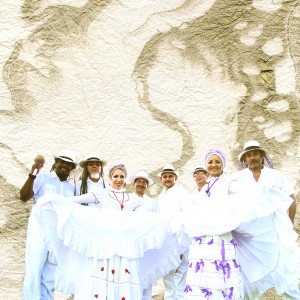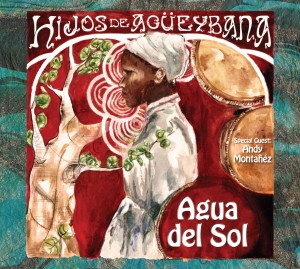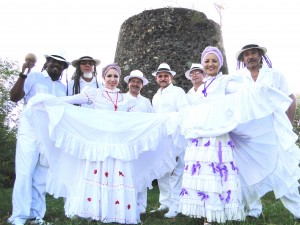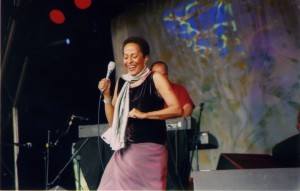I was so saddened to hear of the death of Jan Fairley on Saturday 9th June.There I was in my home town of Kashan in the desert of Iran and received an email from UK saying my beloved friend was gone. I stood in the heat of the day and my tears disappearing in the desert sand…who knows coming next spring a flower may even come to life from the same spot, carrying her soul!
Though we all knew about her illness but you always think perhaps it won’t happen to her and she will be cured I have known Jan for more than 20 years, travelled together in Chile, Cuba and Spain and has been one of the closed family friends of ours. She has also worked with me as a writer on a number of Tumi releases sleeve notes and artist biographies over many years. Her fantastically knowledgeable and incisive writing has been a inspiration for music lovers, opening up the world of the artist to the reader. We will miss her huge and detailed experience of musical culture and her infectious enthusiasm and passion for the performers she loved.
Jan we already miss you and you have not been gone for long….!!!
My love to her family and friends.
Mo Fini
here is an extract from an article in Herald, Scotlant
Published on 12 June 2012
Mike Gonzalez
Writer, lecturer and broadcaster
Born: March 16, 1949; Died: June 9, 2012.
Jan Fairley, who has died aged 63 of colon cancer, was a writer, academic, broadcaster and former director of the Edinburgh International Book Festival.
In one of her last blogs, she reviewed her varied, adventurous, rich life with a phrase from the Chilean singer, Violeta Parra’s anthem “Gracias a la vida que me ha dado tanto” – my thanks to life that has given me so much.
But she gave back as much as she received – in enthusiasm, conviction and love. She always said that Chile changed her life. A student at Essex University she was living in Temuco when the government of Salvador Allende was brought down by a military coup on September 11, 1973. Allende had said “there can be no revolution without song”, and musicians had accompanied him through his campaign and the brief period of change he ushered in when he became president in late 1970. Her life was certainly shaped by that idea – that music has its key role to play in shaping the future. For music can create visions of a different world, inspire artists and listeners with the confidence to achieve it, and provide the emotion and the joy that that struggle can produce.
Returning to Britain, she threw herself into the solidarity campaign with the Chilean resistance. As always, she did this both by protesting against what had happened and by celebrating and communicating to others what had inspired her in the cultural revolution she had witnessed in that brief experience.
Everything she did thereafter set out to celebrate and communicate. Her masters thesis on the Chilean New Song Movement was followed by a doctorate on Karaxu!, one of the groups emerging out of the exile movement.
By the late 1970s, her future path was clearly marked. She described herself as an ethnomusicologist, but that probably underplayed the enormous scope of her knowledge of world music, her commitment to breaking boundaries, to bringing the music of Latin America and the Hispanic world in particular to new listeners and new readers.
And what she communicated was the sheer pleasure of hearing Silvio Rodriguez, Omara Portuondo, and the great Chilean group Inti-Illimani in the company of audiences for whom this music was their very own.
She travelled the world tirelessly to interview and share time with the singers and artists she loved, and with their audiences. It was significant that her doctoral thesis looked not only at the music of Karaxu!, but at their performance as theatre and communication.
If the word had not lost much of its meaning, she could be described above all as a communicator. Her talks were conversations with colleagues; her wonderful radio programmes on Radio 4, Earthbeat, which ran for four years, were unpredictable, slightly chaotic, but invariably journeys of discovery through hidden, unfamiliar corners of world music – you were as likely to hear cumbia from Colombia or rancheras from Mexico as women’s choirs from Bulgaria.
Her beautiful Edinburgh home was a meeting point, an exhibition space, and a theatre where all sorts of remarkable encounters could and did take place, conducted with skill and warmth by Jan herself. They invariably ended up with music, and more than once you would leave feeling that the most memorable event had just taken place in her ample sitting room.
She was also a performer; she sang from an early age, and had once considered turning professional. Although she decided against it in the end, she went on singing for the rest of her life; characteristically, she performed Gilbert and Sullivan, Victor Jara and Bach with the same aplomb. Her work with the Forth Valley Chorus, a women’s barbershop group, was a source of enormous pride and pleasure. It is remarkable to think that she continued her restless search for new avenues even after contracting breast cancer in 2004.
As director of the Edinburgh International Book Festival from 1995 to 1997, she interviewed numerous authors, including Isabel Allende and Doris Lessing. But she would want to be remembered for her writing, her championing of world music through the International Association for the Study of Popular Music, of which she was a stalwart, her work with the Journal of Popular Music, her DJ-ing across Edinburgh, her poetry reading on Anthony Gormley’s Plinth, and her pride in her three lovely children. In other words, as her Facebook page put it, for the many hats she wore with such success. But her friends would also wish to remember her as a woman of courage and conviction, who brought music and vitality to everything she did.
She is survived by her three children, two grandchildren, sister and brother



